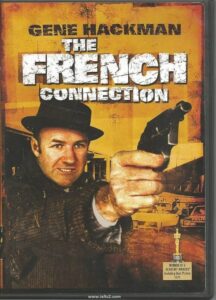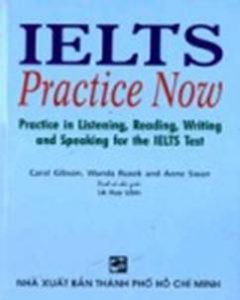لغات ضروری آیلتس برای موضوع بانک
IELTS Vocabulary on Banks
موضوع بانکها و امور مالی یکی از مباحث پرتکرار در آزمون آیلتس است، بهویژه در بخشهای رایتینگ و اسپیکینگ. آشنایی با واژگان کلیدی مرتبط با بانکها و سیستمهای مالی نه تنها به شما کمک میکند تا در مکالمات و نوشتههای خود حرفهایتر به نظر برسید، بلکه نمره بالاتری نیز در آزمون آیلتس کسب کنید. در این مقاله، 20 مورد از لغات کلیدی آیلتس مرتبط با موضوع بانک معرفی شده است که به شما در تقویت دایره لغات و موفقیت در آزمون آیلتس کمک میکند. دانلود PDF جزوه های ایده پردازی رایتینگ آیلتس پیشنهاد بعدی ما به شما عزیزان است.
1. گلچین واژگان کلیدی آیلتس در موضوع بانک
در این بخش، 20 واژه کلیدی مرتبط با بانکها و امور مالی معرفی میشود که به شما کمک میکند تا در آزمون آیلتس از این واژگان به صورت مؤثر استفاده کنید. لغات آیلتس موضوع بانک در بخش بعدی در قالب پاسخ های رایتینگ و اسپیکینگ مورد استفاده خواهد بود.
- Bank Account
- حساب بانکی
- Opening a bank account is essential for managing personal finances.
- افتتاح حساب بانکی برای مدیریت امور مالی شخصی ضروری است.
- Interest Rate
- نرخ بهره
- The central bank recently increased the interest rate to control inflation.
- بانک مرکزی اخیراً نرخ بهره را برای کنترل تورم افزایش داد.
- Loan
- وام
- He applied for a loan to purchase a new car.
- او برای خرید خودروی جدید درخواست وام کرد.
- Mortgage
- وام مسکن
- Many families rely on mortgages to buy their homes.
- بسیاری از خانوادهها برای خرید خانه از وام مسکن استفاده میکنند.
- Overdraft
- اضافه برداشت
- His account went into overdraft after he made several large purchases.
- حساب او پس از چند خرید بزرگ به اضافه برداشت رفت.
- Credit Card
- کارت اعتباری
- Using a credit card responsibly can help build a strong credit score.
- استفاده مسئولانه از کارت اعتباری میتواند به بهبود امتیاز اعتباری کمک کند.
- Debit Card
- کارت بدهی
- A debit card allows you to spend money directly from your bank account.
- کارت بدهی به شما اجازه میدهد تا مستقیماً از حساب بانکی خود پول خرج کنید.
- ATM (Automated Teller Machine)
- دستگاه خودپرداز
- You can withdraw cash from your account at any ATM.
- میتوانید از هر دستگاه خودپرداز وجه نقد برداشت کنید.
- Savings Account
- حساب پسانداز
- A savings account is designed for storing money and earning interest.
- حساب پسانداز برای ذخیره پول و کسب بهره طراحی شده است.
- Investment
- سرمایهگذاری
- He decided to put his money into real estate as an investment.
- او تصمیم گرفت پول خود را به عنوان سرمایهگذاری در املاک و مستغلات بگذارد.
- Transaction
- تراکنش
- All financial transactions are recorded on the bank statement.
- تمام تراکنشهای مالی در صورتحساب بانکی ثبت میشوند.
- Bank Statement
- صورتحساب بانکی
- The monthly bank statement shows all deposits and withdrawals.
- صورتحساب بانکی ماهانه تمامی واریزیها و برداشتها را نشان میدهد.
- Deposit
- واریز
- You can deposit your salary directly into your bank account.
- میتوانید حقوق خود را مستقیماً به حساب بانکی خود واریز کنید.
- Withdrawal
- برداشت
- She made a withdrawal from her savings account to pay for the trip.
- او از حساب پسانداز خود برداشت کرد تا هزینه سفر را بپردازد.
- Balance
- موجودی
- Always check your account balance before making large purchases.
- همیشه موجودی حساب خود را قبل از انجام خریدهای بزرگ بررسی کنید.
- Currency Exchange
- تبدیل ارز
- The bank offers competitive currency exchange rates for travelers.
- بانک نرخهای تبدیل ارز رقابتی برای مسافران ارائه میدهد.
- Banking Fees
- کارمزد بانکی
- Be aware of banking fees such as overdraft charges and ATM withdrawal fees.
- از کارمزدهای بانکی مانند هزینههای اضافه برداشت و کارمزد برداشت از دستگاه خودپرداز آگاه باشید.
- Online Banking
- بانکداری آنلاین
- Online banking allows customers to manage their accounts via the internet.
- بانکداری آنلاین به مشتریان امکان مدیریت حسابهای خود از طریق اینترنت را میدهد.
- Direct Debit
- بدهی مستقیم
- Many people use direct debit to pay their utility bills automatically.
- بسیاری از افراد از بدهی مستقیم برای پرداخت خودکار قبوض خدماتی استفاده میکنند.
- Wire Transfer
- انتقال وجه
- He made a wire transfer to send money to his family abroad.
- او انتقال وجهی انجام داد تا پولی به خانوادهاش در خارج از کشور بفرستد.
2. نکات کاربردی برای استفاده از واژگان در رایتینگ و اسپیکینگ آیلتس
نکته 1: استفاده از لغات آیلتس موضوع بانک در رایتینگ
در بخش رایتینگ آیلتس، میتوانید از این واژگان برای توصیف سیستمهای بانکی، خدمات مالی و تأثیرات وامها و نرخ بهره استفاده کنید:
- Banking services play a critical role in the global economy. For instance, the availability of mortgages and loans allows people to purchase homes and start businesses, while competitive interest rates encourage savings and investments.
نکته 2: استفاده از لغات آیلتس موضوع بانک در اسپیکینگ
در اسپیکینگ آیلتس، میتوانید از این واژگان برای توضیح تجربیات شخصی یا بیان نظرات خود در مورد اهمیت بانکها و خدمات آنها استفاده کنید:
- I think online banking has made managing personal finances much easier. For example, I can check my balance, transfer funds, and even pay bills without having to visit a physical branch. This convenience has completely changed how we interact with banks.
3. سوالات پرتکرار اسپیکینگ آیلتس در موضوع بانک
- What are the benefits of online banking?
- Online banking provides a convenient way to manage finances. With internet access, you can perform transactions, view your bank statements, and transfer money without visiting a bank branch. This saves time and allows for easy financial management.
- بانکداری آنلاین روشی راحت برای مدیریت امور مالی است. با دسترسی به اینترنت، میتوانید تراکنشها انجام دهید، صورتحسابهای بانکی خود را مشاهده کنید و بدون مراجعه به شعبه بانک پول انتقال دهید.
- What is the role of banks in modern society?
- Banks play a crucial role in the economy by offering loans, mortgages, and investment opportunities. They help individuals save money in savings accounts and facilitate economic growth through interest rates and credit.
- بانکها نقش مهمی در اقتصاد دارند. آنها با ارائه وامها، وامهای مسکن و فرصتهای سرمایهگذاری به رشد اقتصادی کمک میکنند و به افراد امکان میدهند تا پول خود را در حسابهای پسانداز ذخیره کنند.
- Why do people use credit cards, and what are the risks?
- People use credit cards for the convenience of making purchases without immediate payment. However, if not managed responsibly, they can lead to debt due to high interest rates and banking fees associated with late payments.
- افراد از کارتهای اعتباری برای راحتی خرید بدون پرداخت فوری استفاده میکنند. با این حال، اگر مسئولانه مدیریت نشود، میتواند منجر به بدهی شود.
4. نمونه رایتینگ تسک 2 آیلتس در موضوع بانک
Question: Some people believe that banking services should be available for free, while others argue that banks should charge fees for their services. Discuss both views and give your opinion.
Sample Answer:
Banks are essential institutions that offer a variety of financial services, from providing loans and mortgages to managing savings accounts and facilitating
transactions. However, there is an ongoing debate about whether banks should provide these services for free or charge fees. Some argue that since banks are critical to the functioning of the economy and people’s financial well-being, they should not burden their customers with banking fees. On the other hand, others believe that banks, as businesses, have the right to charge for the services they provide to ensure quality and security. In this essay, I will explore both perspectives and present my opinion on the matter.
On one hand, proponents of free banking services believe that certain fundamental banking functions, such as opening a savings account or making transactions, should be free of charge. They argue that banking services are essential for everyday life, and fees can disproportionately affect low-income individuals. For instance, people who rely on small incomes might find themselves paying a considerable portion of their earnings in banking fees, such as overdraft charges or ATM withdrawal fees. Additionally, these fees can discourage individuals from opening bank accounts, pushing them toward less secure, informal financial systems. This could lead to higher financial exclusion, particularly in developing countries where access to formal banking is already limited.
Another argument for free banking is that many services, especially online banking, require minimal cost to maintain once the infrastructure is in place. With the increasing digitalization of banking, many customers manage their finances online, reducing the need for physical bank branches and customer service representatives. As such, critics argue that charging fees for online banking services or basic transactions is unnecessary and only serves to increase the profits of banks at the expense of consumers.
On the other hand, those who support charging banking fees believe that banks are businesses and need to charge for their services to remain profitable and provide secure, high-quality services. Running a bank requires significant investments in infrastructure, technology, and cybersecurity. For example, banks must invest heavily in securing online banking platforms and ensuring the safety of wire transfers and credit card transactions. Without the ability to charge fees, banks may not be able to maintain the level of service and security that customers expect. Charging for services such as currency exchange or investment advice is also seen as fair, as these services require specialized knowledge and involve risks for the bank.
In my opinion, while it is important to ensure that everyone has access to basic banking services, some fees are necessary to cover the costs of providing secure and reliable services. However, these fees should be reasonable and transparent. Banks should provide free or low-cost access to essential services like savings accounts, direct debits, and basic transactions, especially for low-income customers. At the same time, it is fair for banks to charge for more complex services, such as investment management, wire transfers, and mortgages, where the costs are higher, and the services provided are more specialized.
In conclusion, while the idea of free banking services may be appealing, banks need to charge for some services to cover their costs and ensure the quality of their offerings. However, it is crucial that these fees are fair and do not create barriers to financial inclusion, especially for those with limited resources. Striking the right balance between free access and paid services is key to creating a banking system that benefits both customers and banks.
کلام آخر
مجموعه ای کاربردی از واژگان و لغات مهم آیلتس در خصوص موضوع بانک همراه با مثال هایی برای پرتکرار ترین تاپیک های اسپیکینگ آیلتس را با هم در این صفحه بررسی کردیم. این آموزش از یکی از سایت های آموزشی مرجع آیلتس را در همین زمینه به شما عزیزان پیشنهاد میکنیم. ضمنا هر سوالی برای شما مطرح هست با در بخش کامنت ها در همین صفحه یا در گروه آموزش رایگان آیلتس ما در تلگرام حتما مطرح بفرمایید ❤️








